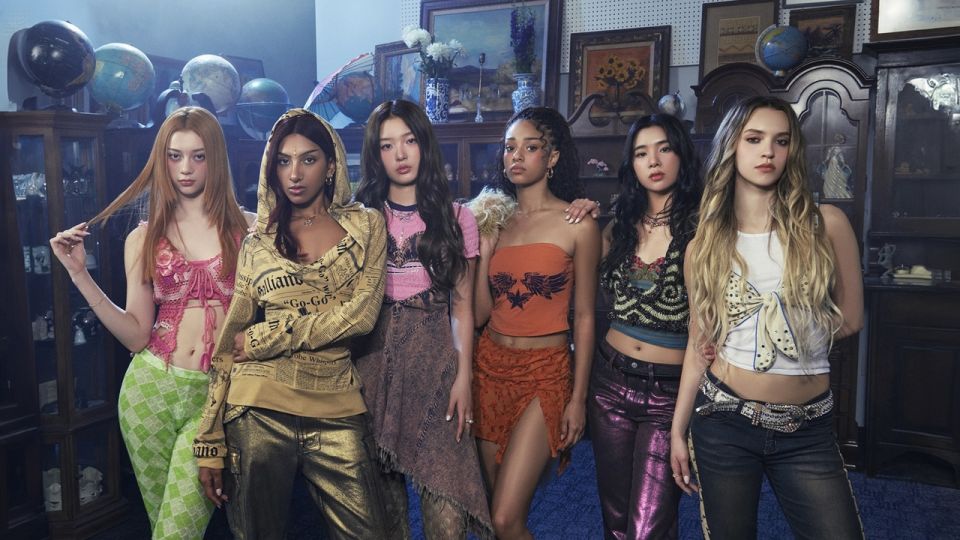March 28, 2025
SEOUL – Lara Raj, a member of Hybe’s first multinational girl group Katseye, publicly addressed her sexual orientation on Monday, a rare move in the K-pop industry that is drawing attention both in South Korea and abroad.
The 19-year-old Indian-American singer discussed her sexual orientation during a conversation with fans on the global fan community platform Weverse on Monday, saying she has known since she was young.
“I knew I was half a fruitcake when I was like eight, so I really was wanting everybody,” Raj said, using a self-deprecating and reappropriated slang term once used as a derogatory label for LGBTQ+ people. “Honestly probably before eight. Isn’t half a fruitcake such a good way to explain it without saying it?”
She also shared that she was initially concerned that her sexuality could impact her chances of debuting with Katseye, which was formed through the 2023 audition show “The Debut: Dream Academy” — a joint project between Hybe and US-based Geffen Records.
“You know in Dream Academy, when it came out I was really really scared, to be honest. I didn’t know if people would accept me and I really thought it might ruin my chances of getting in,” she said.
Hybe said it has no official comment on the matter, describing it as a personal issue related to the artist.
While public sentiment toward sexual minorities in South Korea has shifted significantly in recent years, Raj’s disclosure is unprecedented in K-pop, where no artist from a major agency has openly come out as queer.
An official from one of the major K-pop powerhouses said the news was surprising and will likely elicit varied responses depending on the region.
“Public perception on sexual minorities in Korea has improved a lot, as you can see many TV shows starring them (LGBTQ+ people) these days,” the official said on Tuesday. “But looking at it from the perspective of the overall culture, it’s still a big change. Reactions will likely differ by country. I’m worried because there could be backlash. I don’t know what kind of reaction will come, from where, or how.”
Music critic Lim Hee-yun said Lara’s coming out is “shocking and groundbreaking” in the K-pop context, given the industry’s longstanding conservatism toward artists’ identities.
“While overseas pop artists have often come out publicly, K-pop — despite being creatively diverse in its content — has applied strict and conservative standards to the performers themselves,” Lim said Tuesday. “Even with the changing times, it’s surprising to see something like this happen in K-pop.”
Lim called this a reflection of K-pop’s duality.
“K-pop content is full of indirect expressions of gender fluidity and sexual identity,” Lim said. “Fan fiction revolving around same-sex relationships has existed since the first and second generations of K-pop groups. Yet, these identities have remained hidden or suppressed in the public image of idols.”
He also noted the significance of K-pop’s popularity within LGBTQ+ communities globally, especially in the early 2010s when the genre grew as a niche culture.
“As K-pop spread to the West, it gained massive popularity in queer communities, to the point where it was even nicknamed ‘gay pop,’” Lim said. “Part of its early appeal was tied to the idea of K-pop itself being an underdog or minority culture within the global music industry — something LGBTQ+ fans could strongly relate to.”


